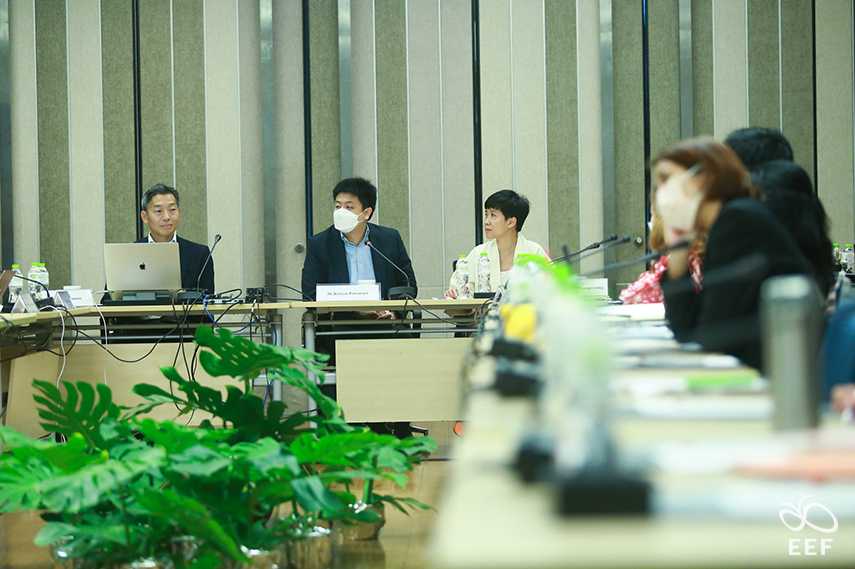
The EEF cooperates with the World Bank, Thammasat University and the National Statistical Office of Thailand to tackle the problem of how “there are still gap between the Thai labor skills and the demanded skills” and prepare measures to upskill and reskill the workers to increase their income and meet the demand of modern businesses by the beginning of next year.
7-8 September 2022 at Pathumwan Princess Hotel, Bangkok, the Equitable Education Fund joined the World Bank, Thammasat University and the National Statistical Office of Thailand in brainstorming for a research project called “Adult Skills Assessment in Thailand” with representatives from organizations involved in educational policies, labor skills, academic subjects and international affairs such as the Ministry of Education, Ministry of Higher Education, Science, Research and Innovation, Ministry of Social Development and Human Security, Ministry of Labor, Ministry of Industry, Ministry of Digital Economy and Society and other concerned organizations attending the presentation on the preliminary results of the Adult Skills Assessment in Thailand research. The representatives also exchanged opinions and suggestions to improve the juveniles and working class of Thailand on the policy level.
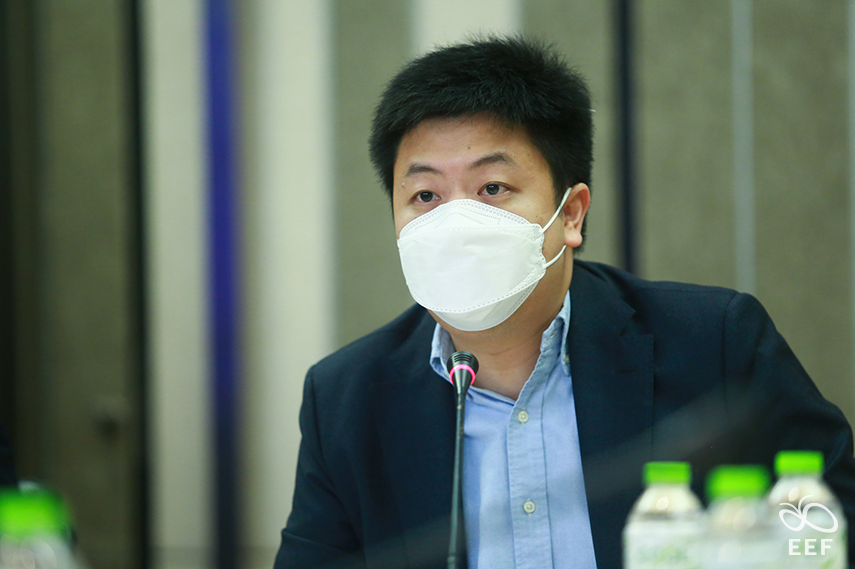
Dr. Kraiyos Patrawart, Equitable Education Fund Managing Director
Dr. Kraiyos Patrawart, Equitable Education Fund Managing Director stated that the skills of Thai laborers still caused a concern based on a previous survey. Thai labor lacked the skills demanded by the market. The problem had been trapping Thailand to being a medium-wage country for more than 20 years. When compared with other countries, the skills of Thai laborers still fall behind those of Malaysia 1.6 times, Hong Kong 3.8 times, Japan 2.9 times, South Korea 2.6 times and Taiwan 3 times.
Meanwhile, a report of the World Economic Forum indicated that Thailand’s work class mostly consisted of manual labor or blue collars while the skilled labor or white collars working in offices handling technologies and management made up only 14.4%. Today, the country has a total working-class population of 44.81 million between 15-59 years old, 37.62 million of them are currently employed, but 75% of them have no university degrees, and 64.9% of the new generation working-class population between 25-29 years old also lacks a university degree.
“If we fail to improve our labor skills, we will not be able to achieve sustainable development for the country. The key to solving the problem is to focus on improving the skills of the new generation laborers to meet the demands of the market. Today, the market is demanding labor with new skills and the ability to quickly adapt themselves. The new generation labor will be the human resources to drive the country forward” says the doctor.
He further added that the effort to improve the country’s juvenile and working-class population should begin with a policy that is clear, straight to the point and meet the demand of the stakeholders. In order to design the right policy, it should start from the database under the collaboration of EEF, the World Bank, Thammasat University and the National Statistical Office of Thailand to survey the skills and readiness of the working class population between 15-65 years old nationwide before handing over the data to relevant authorities to draft the policy.
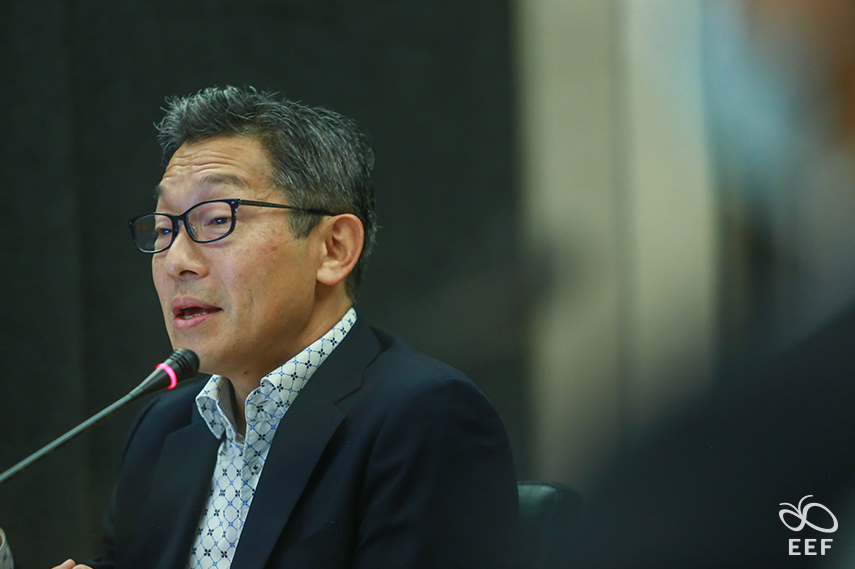
Mr. Koji Miyamoto, Senior Economist for Global Practice of the World Bank
Mr. Koji Miyamoto, Senior Economist for Global Practice of the World Bank explained that the foregoing information suggests that there is still a skills gap among the working class population. If used properly in drafting the education and skills improvement policy, the information should greatly help improve the country according to the plan. A good example can be found in member countries of the Organization for Economic Co-operation and Development (OECD) where working-class population database is employed in drafting a policy that directly tackles the problem.
“The tool used in this research is data collection that focuses on the Adult Skills Assessment that the World Bank has employed, the most advanced research method to assess major skills such as literacy skills, digital skills and social-emotional skills. Furthermore, it also expands the coverage by inquiring about the background of Thai labor to determine the correlation between the skills, education and training received by a worker as well as how labor impacts the market. We really appreciate all concerned for hosting the seminar to drive the research. All suggestions received from the both days will certainly be very useful in preparing the reports of Thailand’s Adult Skills Assessment” says Mr. Koji.
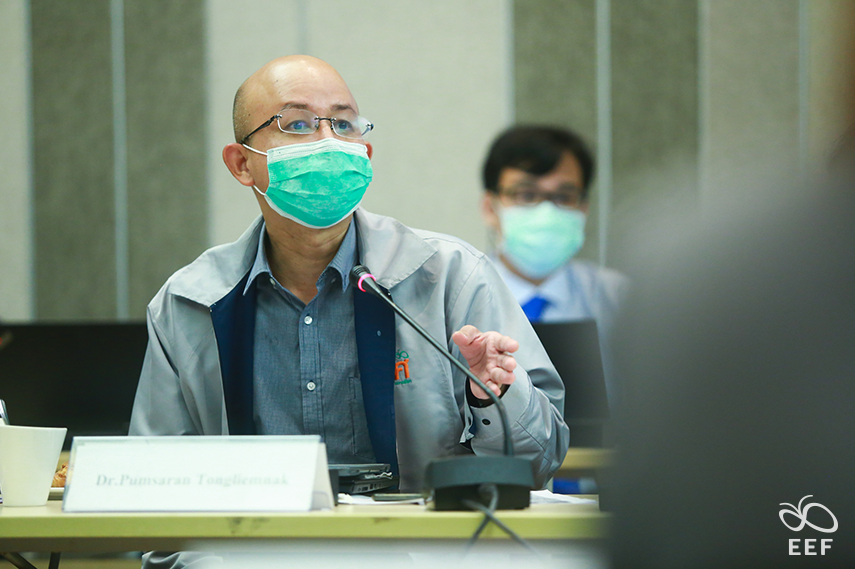
Dr. Pumsaran Tongliemnak, Director of Equitable Education Research Institute
Dr. Pumsaran Tongliemnak, Director of Equitable Education Research Institute stated that this brainstorming seminar to drive the Adult Skills Assessment in Thailand is the country’s first event to assess the proficiency level of the working class population systematically by emphasizing 3 essential skills. This project is also part of the Big Rocks introduced in the national development strategy for education that aims to upgrade the skills of the working class population. The strategy requires the country to conduct a survey on labor skills every 3 years to tackle the inequality problem.
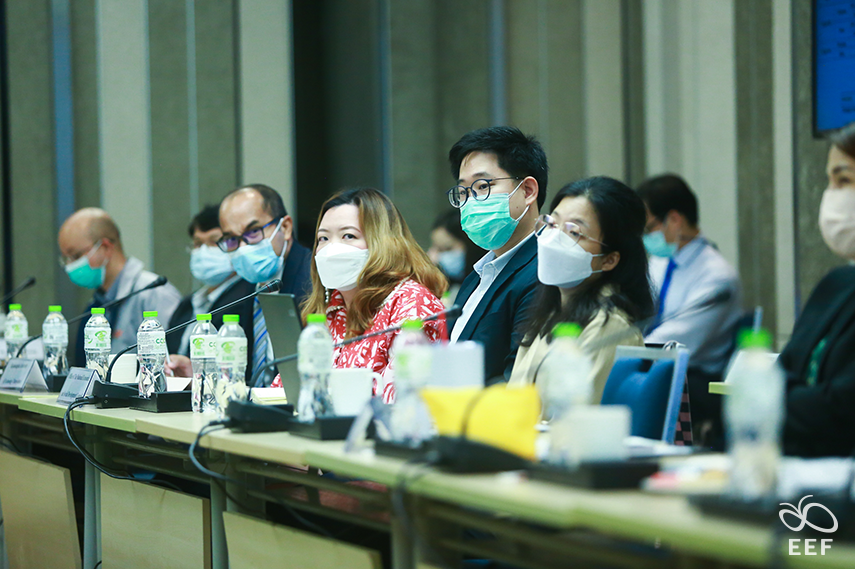
“It is a survey that allows us to see the proficiency of Thai labor more clearly to determine how the levels of literacy skills, digital skills and social-emotional skills differ from region to region and population group to population group and which skills should be promoted. The results can be used to develop a labor skills development policy to shift Thai labor toward market demands. The preliminary reports also indicate a correlation between the skills and impacts on the labor market such as income, social-emotional skills and attitudes or non-cognitive skills that are important and have impacts on the pay rates,” says Dr. Pumsaran Tongliemnak.
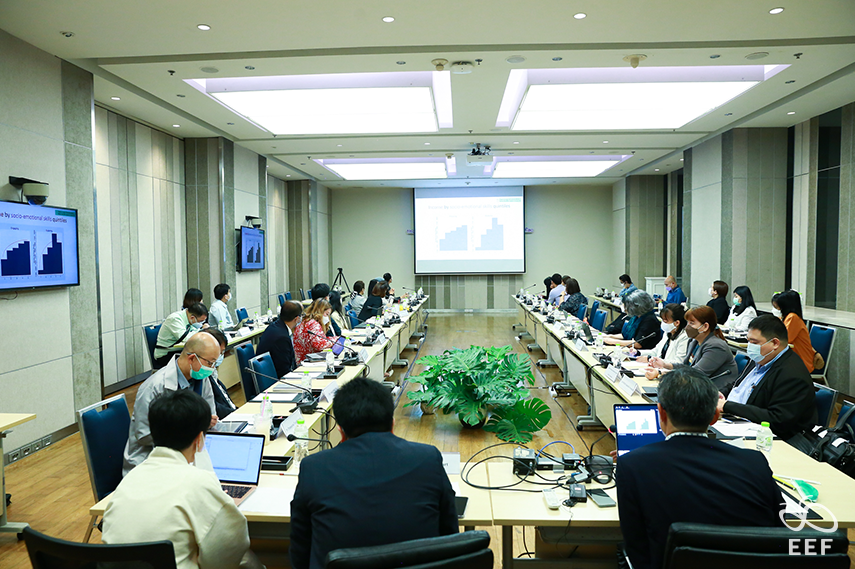
Anyhow, the EEF and the collaborator network continue to drive the “Adult Skills Assessment in Thailand” project by processing the data to prepare a full report for the public by the beginning of next year.

